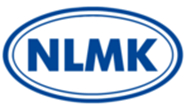Market Segment

November 18, 2021
NLMK Indiana Resumes After Planned Outage
Written by Michael Cowden
NLMK USA has resumed production at its electric arc furnace (EAF) sheet mill in Portage, Ind., after a planned maintenance outage, according to sources familiar with the matter.
The outage at the mill – also known as NLMK Indiana – began earlier this month and had been expected to conclude in about a week.
![]()
NLMK USA typically takes a one-week outage every six months at the northwest Indiana mill – one over the summer and another in November or early December.
It makes hot-rolled coil, hot-rolled pickle and oil, and high carbon and alloy material, according to its website.
Its EAF has capacity of 680,000 tons per year, and its hot strip mill has annual capacity of one million tons per year, according to the Association for Iron and Steel Technology (AIST) 2021 Directory of Iron and Steel Plants.
By Michael Cowden, Michael@SteelMarketUpdate.com







